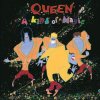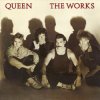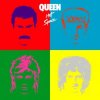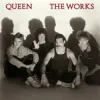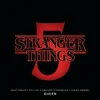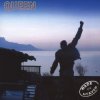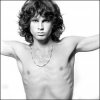

Queen is a legendary British rock band formed in London in 1970. The group became a symbol of an era and had a tremendous impact on the development of rock music, pop culture, and the live concert industry. Their unique style — blending elements of hard rock, glam rock, arena rock, and opera — created an entirely new approach to musical artistry. All eighteen of Queen’s studio albums topped charts worldwide, and their hits still resonate across major radio stations and festivals around the globe.
Early Years and Formation
The story of Queen began when Imperial College London students — guitarist Brian May and drummer Roger Taylor — formed the band Smile. In 1970, vocalist and pianist Farrokh Bulsara (better known as Freddie Mercury) joined them, proposing the new name Queen and designing the group’s iconic crest. A year later, bassist John Deacon completed the lineup, and by 1971, the classic quartet that would become legendary was formed.
Breakthrough and Global Fame
The debut album Queen (1973) received positive reviews, but it was Queen II (1974) and Sheer Heart Attack (1974) that brought international recognition. True success arrived in 1975 with the album A Night at the Opera, which went four times platinum. Its lead single, “Bohemian Rhapsody” — a six-minute rock opera — revolutionized the music world, and its accompanying video is often regarded as a forerunner of the modern music video format. The song topped the UK charts and cemented its place as one of the greatest hits of the 20th century.
In the years that followed, Queen released a string of acclaimed albums: A Day at the Races (1976), News of the World (1977) featuring the anthems “We Will Rock You” and “We Are the Champions”, Jazz (1978), and The Game (1980) with mega-hits “Another One Bites the Dust” and “Crazy Little Thing Called Love”.
Experimentation and World Tours
The 1980s marked a period of experimentation. Queen incorporated elements of funk, pop rock, and synth-driven sounds. The album Hot Space (1982) featured a collaboration with David Bowie — “Under Pressure”. Subsequent albums The Works (1984), with “Radio Ga Ga,” and A Kind of Magic (1986), the soundtrack to the film Highlander, further expanded their musical range.
In 1985, Queen’s performance at the Live Aid benefit concert in London became one of the most iconic live shows in history. It was viewed by over 1.5 billion people worldwide.
The Final Years with Freddie Mercury
The Miracle (1989) and Innuendo (1991), Freddie’s final lifetime releases, showcased the band’s maturity and emotional depth. Songs like “Innuendo” and “The Show Must Go On” became symbols of courage and artistry. In November 1991, Freddie publicly announced he was suffering from AIDS and passed away the following day — November 24, 1991.
The 1995 album Made in Heaven, built from Mercury’s final recordings, served as a moving farewell and became one of the most successful posthumous releases in rock history.
After Mercury
Following Freddie’s death, the band did not disband. Brian May and Roger Taylor continued performing under the Queen + banner. From 2004 to 2009, they toured with Paul Rodgers (Queen + Paul Rodgers), and since 2011, they have collaborated with Adam Lambert, an American Idol finalist, giving the project new life.
The Queen + Adam Lambert tour has been a triumph, selling out stadiums worldwide, including the Rhapsody Tour (2019–2024). The group has headlined major festivals such as Rock in Rio, Global Citizen, and Fire Fight Australia, and in 2022, they opened the concert celebrating Queen Elizabeth II’s Platinum Jubilee.
Bohemian Rhapsody and a New Generation
In 2018, the biographical film Bohemian Rhapsody grossed over $900 million worldwide and won 4 Academy Awards. The film reignited global interest in Queen — their songs re-entered the Billboard Hot 100 and Spotify Top 50, inspiring a new generation of fans.
Achievements and Legacy
- Over 300 million records sold worldwide;
- 18 studio albums, 10 DVDs, and dozens of chart-topping singles;
- Induction into the Rock and Roll Hall of Fame (2001);
- Recipient of Grammy Lifetime Achievement Award and Brit Icon Award;
- “Bohemian Rhapsody” surpassed 2 billion streams across all platforms.
Today
In the 2020s, Queen remains one of the world’s most recognizable musical brands. The Queen + Adam Lambert: Rhapsody tour continues to sell out arenas, while reissues of classic albums frequently chart anew. Queen’s music is featured in films, series, and sports events, continuing to inspire artists across generations.
Conclusion
Queen is more than just a band — it is a cultural phenomenon that redefined rock, live performance, and artistic freedom. Their music lives on, uniting millions of listeners and proving once again: The Show Must Go On.

